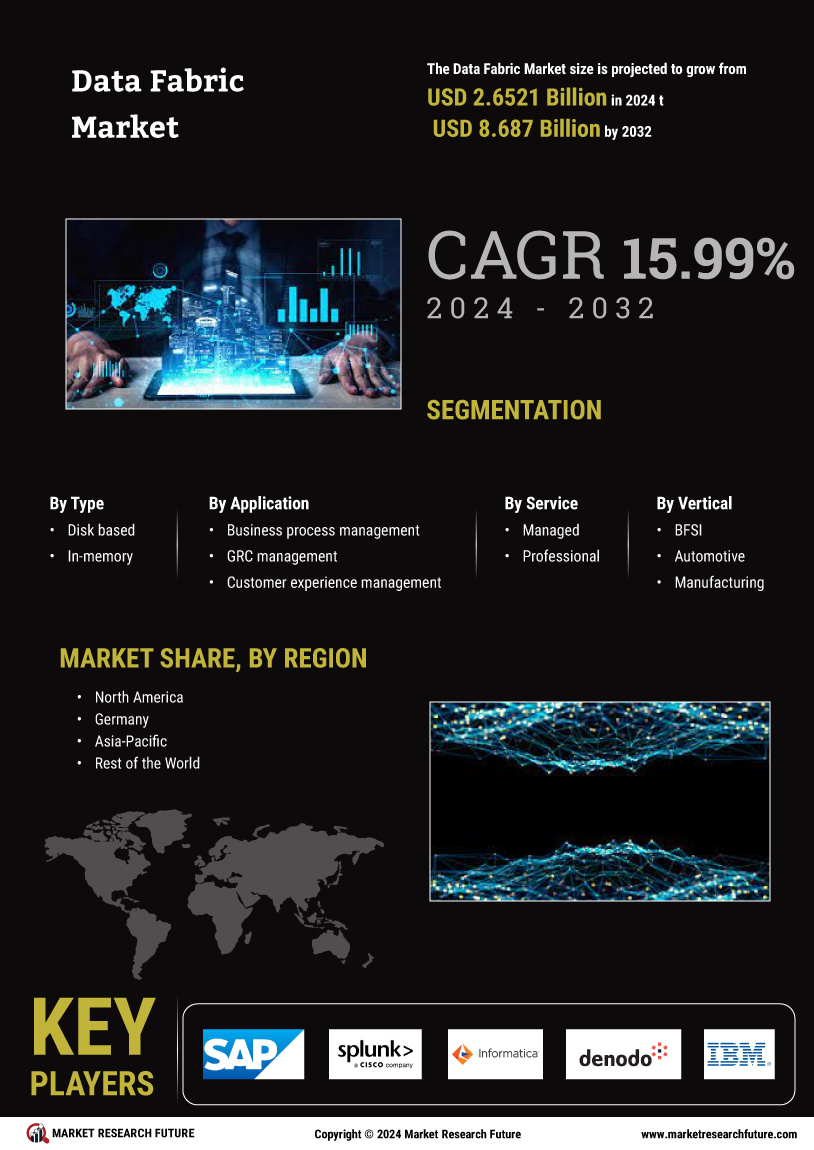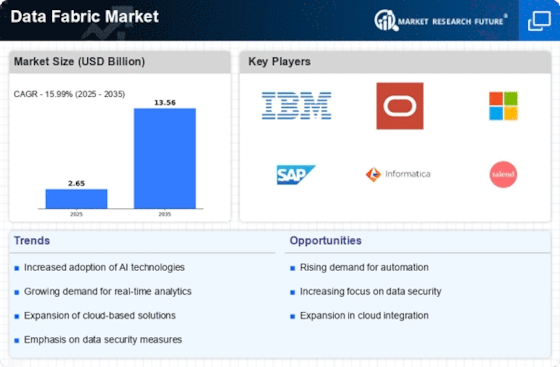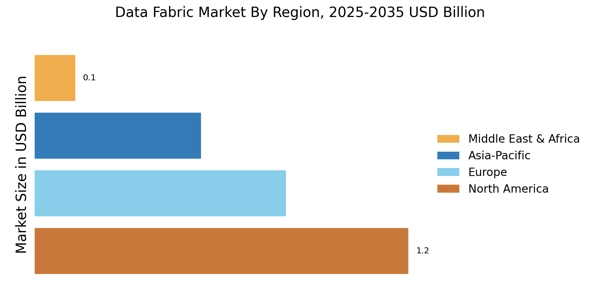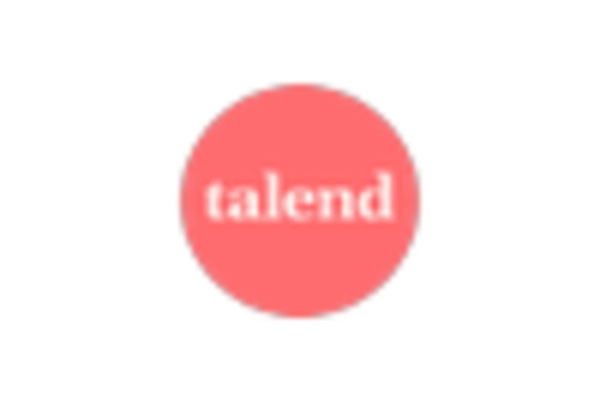Rising Demand for Real-Time Data Access
The Data Fabric Market is experiencing a notable surge in demand for real-time data access. Organizations are increasingly recognizing the necessity of having immediate access to data for decision-making processes. This trend is driven by the need for agility and responsiveness in business operations. According to recent estimates, the market for real-time data analytics is projected to grow at a compound annual growth rate of over 30% in the coming years. This growth is indicative of a broader shift towards data-driven strategies, where timely insights can significantly enhance competitive advantage. As a result, the Data Fabric Market is likely to see innovations aimed at facilitating seamless data integration and accessibility across various platforms.
Expansion of Data-Driven Decision Making
The Data Fabric Market is witnessing an expansion in data-driven decision-making practices across various sectors. Organizations are increasingly leveraging data analytics to inform strategic choices, thereby enhancing operational efficiency and customer satisfaction. This shift is supported by the proliferation of data sources, which has made it imperative for businesses to adopt comprehensive data management solutions. Recent reports suggest that companies utilizing data-driven strategies are 5 to 6 times more likely to make faster decisions than their competitors. Consequently, the Data Fabric Market is poised for growth as businesses seek to implement frameworks that enable effective data utilization and integration.
Advancements in Data Integration Technologies
The Data Fabric Market is significantly influenced by advancements in data integration technologies. As organizations grapple with disparate data sources, the need for effective integration solutions has become paramount. Innovations in technologies such as APIs, data virtualization, and cloud-based integration platforms are enabling seamless connectivity between various data silos. This evolution is expected to enhance the efficiency of data management processes, allowing businesses to derive insights more effectively. Market analysts project that the data integration market will grow substantially, potentially exceeding 20 billion dollars by 2026. Such advancements are likely to propel the Data Fabric Market forward as organizations seek to harness the full potential of their data assets.
Growing Importance of Data Security and Compliance
In the Data Fabric Market, the growing importance of data security and compliance is becoming a critical driver. As organizations increasingly rely on data for their operations, the need to protect sensitive information and adhere to regulatory requirements has intensified. The rise in data breaches and stringent regulations, such as GDPR and CCPA, has compelled businesses to invest in robust data management solutions. It is estimated that the global spending on data security will reach over 150 billion dollars by 2025. This trend underscores the necessity for data fabric solutions that not only facilitate data integration but also ensure compliance and security, thereby driving growth in the Data Fabric Market.
Increased Focus on Customer Experience Enhancement
The Data Fabric Market is increasingly driven by a focus on enhancing customer experience. Organizations are recognizing that personalized and timely interactions with customers can significantly impact satisfaction and loyalty. To achieve this, businesses are turning to data fabric solutions that enable them to analyze customer data across multiple touchpoints. This approach allows for a more holistic understanding of customer behavior and preferences. Recent studies indicate that companies that prioritize customer experience are likely to achieve revenue growth rates of 4 to 8% higher than their competitors. As a result, the Data Fabric Market is expected to expand as organizations invest in technologies that facilitate improved customer engagement through data-driven insights.

















